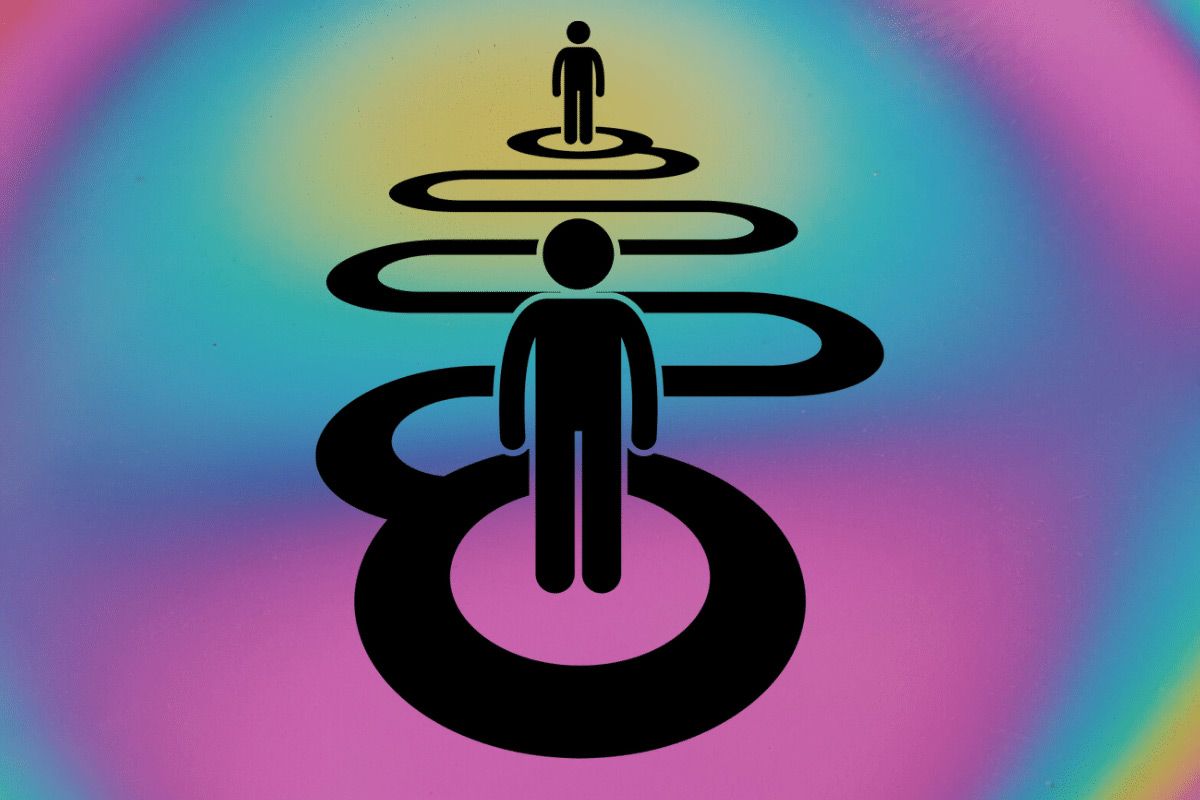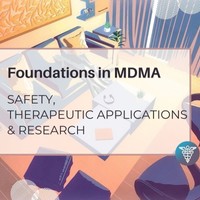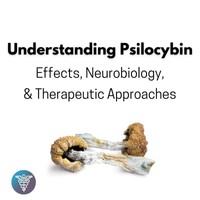In this article, we will explore some of the current job/career opportunities within the psychedelics space. Many different types of jobs are available today within the psychedelics space, and many more will become available in the coming years. Learn how you can become part of the “psychedelic renaissance” and jumpstart a new career.
As someone who works within the psychedelic and cannabis space, I’m often asked, “How do I get a job in the psychedelic industry?” It’s a great question, as this is a burgeoning field that offers new career opportunities within a unique industry. That said, the field is still relatively small, so depending on your experience and qualifications, you may need to stand out from the crowd to snag your dream job.
A Brief History of Psychedelics
The future looks bright for psychedelics, and although most psychedelics are still illegal in the United States, as early as 2023, the FDA is likely to approve MDMA as a legal clinical treatment for PTSD. In addition to MDMA, psilocybin (magic mushrooms) will likely become FDA-approved for depression in 2024. Today, ketamine (yes, it’s a psychedelic) is legally administered in clinics across the US by registered practitioners to treat depression, anxiety, and chronic pain.
Plant-based psychedelics have been around for millennia, and the desire to alter one’s consciousness with mystical experience is nothing new. From the ancient Greek to Indigenous tribes in the Amazon, psychedelic medicines, such as psilocybin, ibogaine, and ayahuasca, have traditionally been used as part of indigenous and shamanic traditions to heal body, mind, and spirit. This same intention extends to many modern psychedelic enthusiasts and has only grown since the synthetic psychedelic LSD became popular in the 1960s.
The 60s and 70s ushered in a vibrant psychedelic counter-culture movement in the United States, a time when psychonaut Timothy Leary popularized the slogan “Turn on, tune in, drop out.” While America’s youth sought to expand consciousness, serious psychedelic research into mental health, addiction, and more took place during this time. Unfortunately, Nixon’s War on Drugs squashed the psychedelic movement of the 60s, and in so doing, the research and science withered away. But today, medicinal psychedelics are in the limelight once again – and for all the right reasons.
We are just at the beginning of the modern “psychedelic renaissance”, where current research and science reveal psychedelics to be a legitimate medicine. Major research institutions and universities such as Johns Hopkins, Harvard, UCLA, Imperial College London, and the University of Zurich are researching various psychedelics, with positive results, for depression, PTSD, anxiety, addiction, and more. This momentum is also opening the door to new career possibilities within the psychedelic industry.
Follow your Curiosity
Sign up to receive our free psychedelic courses, 45 page eBook, and special offers delivered to your inbox.Finding a Career in the Psychedelic Industry
Many different types of jobs are available today within the psychedelics space, and many more will become available in the coming years. But, the psychedelic industry spans a wide range of potential areas of interest, and by no means will this list be comprehensive.
The variety of job opportunities spans from being a psychedelic guide, working in a ketamine clinic, being a psychedelic psychotherapist, and several more. Some of these jobs may require years of previous training and additional certification, while others offer entry-level positions. In any case, you must be educated and informed on the topic of psychedelics.
A word of advice as someone who has hired people within both the cannabis and psychedelic industry: If you only have a passion for psychedelics, i.e., you do not have advanced training or a unique a skill set, you’re unlikely to land a job.
Some suggestions on how to stand out from the crowd:
- Develop the core skills needed for the specific job role
- Volunteer for psychedelic organizations/nonprofits such as Zendo
- Intern at a company within the industry
- Network with others and develop authentic relationships
- Apply yourself – get certified and qualified within your psychedelic area of interest
- Be a part of the conversation – where are people in the industry talking? Be there!
- Sign up for all the industry rags and read them – religiously
- Go the extra mile for people and pay it forward – it typically works out!
Below is a listing of 5 different jobs that are available today within the psychedelic industry.
1. Work as a Psychedelic Guide
A psychedelic guide, sometimes called a trip sitter, is a person who helps others navigate a psychedelic experience safely. The goal of a guide is to create a safe container with structure and support when needed. Think of a guide like you would a coach; they help facilitate your psychedelic journey with intention. A knowledgeable psychedelic guide will help create the right set and setting and help you work through any emotions as they arise.
Psychedelic guides are often used in:
- clinical psychedelic psychotherapy sessions
- psychedelic clinical trials
- research institutions such as John Hopkins
- during ketamine treatments
Take free courses on psychedelics and learn psychedelic basics:
Take these free psychedelics 101 courses, learn about the latest research and understand basic harm reductions principles.
2. Work as a Psychedelic Psychotherapist
Psychedelic-assisted psychotherapy, or PAP, is when a licensed psychotherapist integrates psychedelics into their work with clients. A psychedelic psychotherapist uses psychedelics as a tool to unlock emotions, understand trauma, and shift perspectives.
The goal of the psychedelic psychotherapist is to get to the essence of a client’s issues and to create meaningful experiences whereby a client has positive cognitive, emotional, and behavioral changes. Psychedelic psychotherapists may work with clients before a psychedelic journey, during the trip, or as an integration therapist after a psychedelic experience.
Today, many licensed psychotherapists actively work as integration therapists. When MDMA and psilocybin are legal to administer within clinical settings, there will be a need for thousands of trained psychedelic psychotherapists.
Receive training to be a psychedelic psychotherapist:
Foundations in MDMA Safety, Therapeutic Applications & Research
Learn how MDMA works within the brain during psychotherapy sessions and why this technique is being studied to treat many different mental health conditions. Learn more about MDMA in our substance guide.
3. Work in a Ketamine Clinic
Ketamine clinics are opening up across the United States to treat patients with treatment-resistant depression, mood disorders, addictions, chronic pain, and PTSD. Within a clinic, ketamine (IV infusions, oral lozenges, nasal spray, or intramuscular injections) are administered to patients seeking relief. Ketamine therapy works by taking the medication with or without psychotherapy Therapeutic effects generally last anywhere from days to two weeks. Patients usually start with a series of six appointments over a period of weeks or months.
Career opportunities within a ketamine clinic:
- Clinic Coordinator
- Registered Nurse
- Associate Licensed Clinician/ Mental Health Counselor
- Customer Service/ Patient Reception
- Psychiatrist
- Psychedelic Guide
Learn more about ketamine:
Psychedelic Support offers ketamine training for providers in partnership with Polaris Insight Center. Psychedelic Support has also built an online course to train providers on ketamine and its therapeutic effects, clinical research findings and neural mechanisms. Learn more about ketamine in our susbtance guide.
Ketamine: Therapeutic Applications, Clinical Research, and Neural Mechanisms
The Psychedelic Support Ketamine online course teaches about ketamine’s pharmacology, safety and effects, neuroscience findings, therapeutic approaches, and risks associated with recreational use.
4. Work as a Psychedelic Journalist
Research and science is ramping up within the psychedelic space, as are new psychedelic biotechs inventing novel psychedelic medicines, and investors are now clamoring to be part of ‘the next big thing.’ While all of this is happening, people are writing about it.
Psychedelic journalism is on the rise, and not enough qualified people can write about it knowledgeably. UC Berkeley recently launched a psychedelic journalism fellowship program, and Michale Pollan has even spoken about the need for more people to step up. To get started, write a current events article on the psychedelic industry or about a topic that interests you and pitch it to online psychedelic sites.
Learn everything you need to know about psilocybin:
Understanding Psilocybin: Effects, Neurobiology, and Therapeutic Approaches
This course provides a comprehensive summary of the pharmacology and effects of psilocybin, how it works in the brain, and why people can have mystical experiences and sensory-perceptual shifts. Learn more about psilocybin in our substance guide.
5. Work in a Psychedelic Tech Startup
Numerous psychedelic tech startups are focusing on Telehealth and low-dose ketamine and app development. Within most of these tech companies you will find all the usual roles available:
- Marketing
- HR
- Developers
- Product Management
- Creative Director
- Visual Design and Brand Development
Take free courses on psychedelics and learn psychedelic basics.
Some other areas where you may find psychedelic job opportunities are in the nonprofit space, psychedelic venture funds, psychedelic retreat and rehabilitation centers outside the United States, research institutions, and biotech.


















